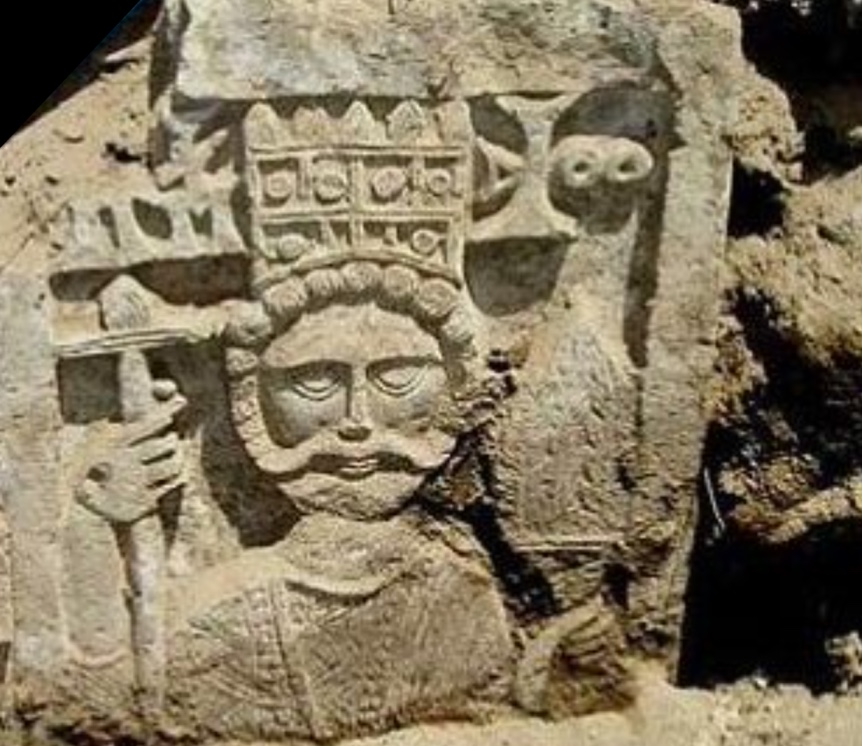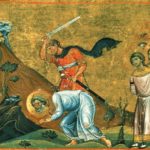
Fr. Joseph Daou, a specialist in ecclesiastical history, noted that “One can put an end to the lives of many and expel them from their lands, but if their history is destroyed it is as if they never existed, they become like ashes merging into the desert sands. But what is heart-warming is how the story of their lives and the history of their achievements is still imprinted on rare manuscripts, archaeological stones and ancient inscriptions that have been unearthed”.
BY NAFI SHABOU
BEFORE COMING TO THE SPREAD of Christianity in the Arabian Peninsula and the Fertile Crescent before and after Islam, we should pause a little to examine what was written down by some Arab historians, scribes and writers concerning the era prior to the emergence of Islam. What do these historians say about the spread of Christianity in the pre-Islamic Arabian Peninsula and the Fertile Crescent?
Muslim researchers are familiar with a hadith attributed to Muḥammad that runs: “Islam destroys what went before it”. The caliphs, imams and the general public throughout the ages were motivated by a belief that they were establishing the pillars of the ‘Ḥanīf faith’, but by failing to distinguish between the wheat and the chaff they virtually eliminated all landmarks of culture, literature and history.
To this day, there are Arab and Islamic countries that still prohibit any excavation of antiquities
Jawād ‘Alī writes that all the Muslim caliphs destroyed everything related to Christianity due to misunderstanding the hadith: “Islam destroys what went before it” which should more correctly be: “Islam cuts out what was before it”, that is, it excises and erases the Disbelief and sinfulness that preceded it.
In all of the multimillion-dollar funded institutes in the Arab world, there is not a single work that defends Christianity. What dominates there is the Islamic conception that says that ‘those who say Jesus is the son of God have disbelieved’. Jawād ‘Alī argues that “the Hijaz was called Hijaz because it blocked (ḥajaz) the Christian civilization. The Hijaz blocked the Levant from Yemen”.
He then adds:
The Muslim commentators looked down on the storytellers with contempt and accorded them no value. This was due to their narrating tales of the jāhiliyya, the ‘era of ignorance’ and their pre-occupation with collecting its history and talking of Christian narrative. The Arabs had storytellers, but had no historians, and these ancient storytellers, much like modern Arabs had no knowledge of Syriac and Greek manuscripts. Moreover, the Syriac patriarchs wrote in Syriac in fear of their Muslim rulers.
To this day, there are Arab and Islamic countries that still prohibit any excavation of antiquities and refuse to accept the results of archaeological discoveries or what was written by other peoples occupied by Arabs and Muslims – especially the works written down by the church clergy and Christian monks over a period of 1,400[i] years.[ii]
It is absurd to say today that ‘Islam’ is a purely religious concept and that it emerged in a spiritual vacuum
In his book قريش من القبيلة الى الدولة المركزية (‘The Quraysh from Tribe to Central State’) the writer Khalīl ‘Abd al-Karīm states that he is quoting from
the opinions of researchers who conclude that the spread of the two monotheistic Semitic religions among the Arab tribes was one of the primary factors prompting the disintegration of Arab paganism in favour of monotheism. Christianity undoubtedly played the principal part in this because it was far more widespread than Judaism.[iii]
Muḥammad Ḥassān al-Munīr, author of يوم قبل وفاة محمد (‘The Day Before Muḥammad’s Death’), says in the introduction to his book:
It is absurd to say today that ‘Islam’ is a purely religious concept and that it emerged in a spiritual vacuum. Many scholars writing on the emergence of Islam and the Qur’ān argue that Muḥammad called for the reform of a corrupt and fractured society, and some maintain that he buttressed his call with teachings from the Gospel on poverty and charity work. What justifies the shallowness of such a position is that Islamic works on biography and history omitted much about of Christianity before and during the advent of Islam, “and all knowledge that is not recorded on paper has been lost”. For example, very little is recorded of the effects of preaching among Arab Christians in the pre-Islamic era, and the same goes for Christian poetry. It is as if Arab historians deliberately portrayed the Arabs as living almost isolated from Christianity and without any knowledge of it.
In fact, works of history and heritage do not accurately depict the situation of Judaism and Christian heresies at the time of the advent of Islam. It is certainly not possible to understand the nature of the connection of the Arab Prophet Muḥammad with Judaism and Christian heresies without first painting a picture of Jewish and Christian life in the Arabian Peninsula. I therefore feel it is a matter of urgency that the conditions of the Jews and Christians at the emergence of Islam be researched, as my contribution to providing this picture.

Suggested Reading
Islam cannot be understood without an in-depth study of the pre-Islamic religions, and given that heritage books give few details on Christianity and Judaism,
this all the more demands an in-depth and comprehensive study, for without this it will not be possible to understand the circumstances of Islam’s emergence, especially since the Qur’ān represents a specific and inclusive theory in monotheistic religions… If we overlook this, how can we explain to the reader that Islam possesses a common denominator that unites all religions?”
[i] Fr. Joseph Daou, specialist in historical manuscripts, ‘Ajras al-Mashriq’ programme, Al-Manar TV. See Jawād ‘Alī المفصل في تاريخ العرب قبل الأسلام Part One, p.89, Dar Al-Ihya’ Lil-Turath al-Arabi.
[iii] The book is available in the Almuslih Library here.
Main image: A stone carving of a Christian figure found in Zafar, Yemen
